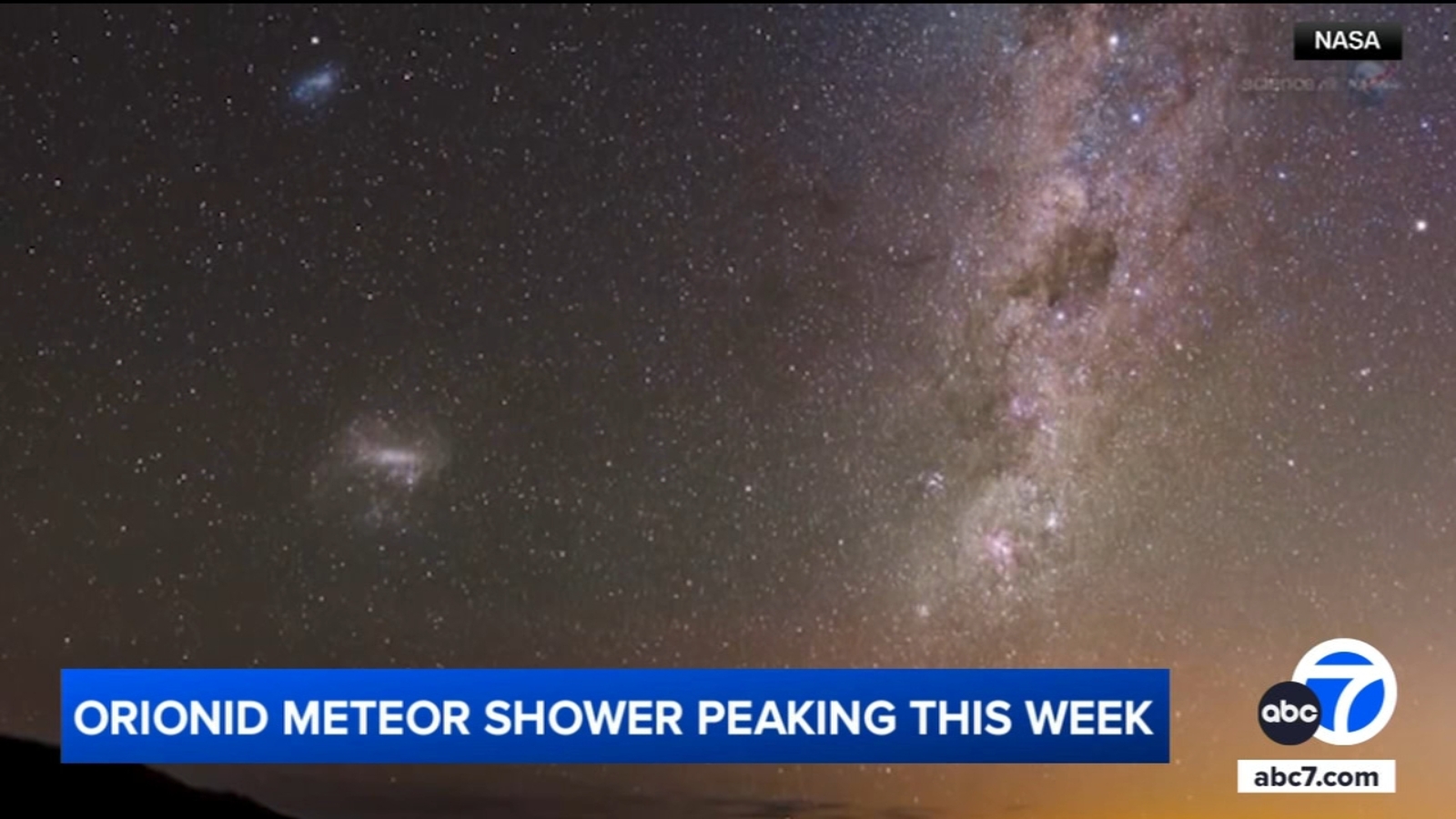
"Sky-gazers worldwide will see a brilliant celestial display this week as the Orionid meteor shower peppers the sky in bright trails of light. The meteor shower, which is occasionally known to produce fireballs, is set to peak at 8 p.m. ET Monday, according to EarthSky. The Orionids don't have a sharp peak, "so if you happen to get clouded out on that night, don't despair,""
"If you're lucky, you may glimpse more than one meteor shower because the Southern Taurids are also active, expected to peak November 4-5 around the time of a full moon. The Orionid meteors shoot forth from the Orion constellation, while the Taurids, which are much slower, originate farther west in Taurus "It's kind of like they're doing battle," Lunsford said. "Slow meteors are shooting eastward toward Orion, and fast ones are shooting westward toward Taurus.""
The Orionid meteor shower will peak at 8 p.m. ET Monday and will be visible to sky-gazers worldwide. The shower does not have a sharp peak, so similar activity can be seen on nearby nights. A new moon will provide dark skies, improving visibility. Under clear conditions, observers can expect 10 to 20 meteors per hour. Orionids are fast-moving and typically last a fraction of a second, though brighter meteors can leave persistent smoke trains. The Southern Taurids will also be active, peaking November 4–5, radiating from Taurus while the Orionids radiate from Orion. Best viewing is toward the southern sky around 10 p.m. Monday or 4–5 a.m. Tuesday local time. The Orionids originate from debris left by comet 1P/Halley.
Read at ABC7 Los Angeles
Unable to calculate read time
Collection
[
|
...
]